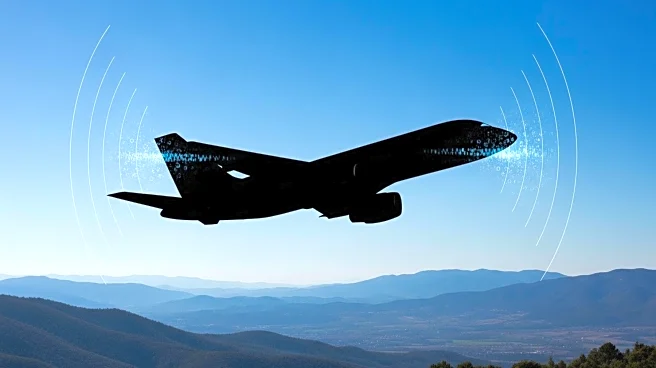What is the story about?
What's Happening?
During an official visit to Bulgaria, Ursula von der Leyen's plane experienced GPS jamming, suspected to be caused by Russian interference. The incident forced the plane to land in Plovdiv using paper maps instead of electronic navigation systems. The European Commission confirmed the GPS jamming and suspects Russian involvement, citing it as part of Russia's hostile behavior. Von der Leyen's visit was part of a tour of EU member states bordering Russia and Belarus, aimed at promoting defense spending and expressing solidarity. The Kremlin denied involvement, stating the information was incorrect.
Why It's Important?
The GPS jamming incident highlights ongoing security challenges faced by the European Union in its relations with Russia. It underscores the need for robust defense mechanisms and cybersecurity measures to protect against hybrid warfare tactics. The event may influence EU policies on defense spending and security cooperation among member states. It also reflects broader geopolitical tensions, as Russia's actions are perceived as retaliatory measures against European support for Ukraine. The incident could impact diplomatic relations and prompt discussions on enhancing aviation security and navigation systems.
What's Next?
The European Commission may pursue further investigations into the GPS jamming incident, potentially leading to increased security protocols for EU officials traveling in regions near Russia. The EU is likely to continue its efforts to ramp up defense capabilities and support for Ukraine, as emphasized by von der Leyen during her visit. The incident may also prompt discussions on international cooperation to address cybersecurity threats and protect civilian infrastructure. Additionally, von der Leyen's tour will proceed, focusing on defense readiness and solidarity among member states.
Beyond the Headlines
The incident raises concerns about the ethical use of technology in geopolitical conflicts and the potential for escalation in EU-Russia relations. It highlights the importance of international collaboration to address cybersecurity threats and protect civilian infrastructure from hostile actions. The event may influence long-term shifts in diplomatic relations and security policies, as the EU seeks to counteract Russian influence in Eastern Europe.

















